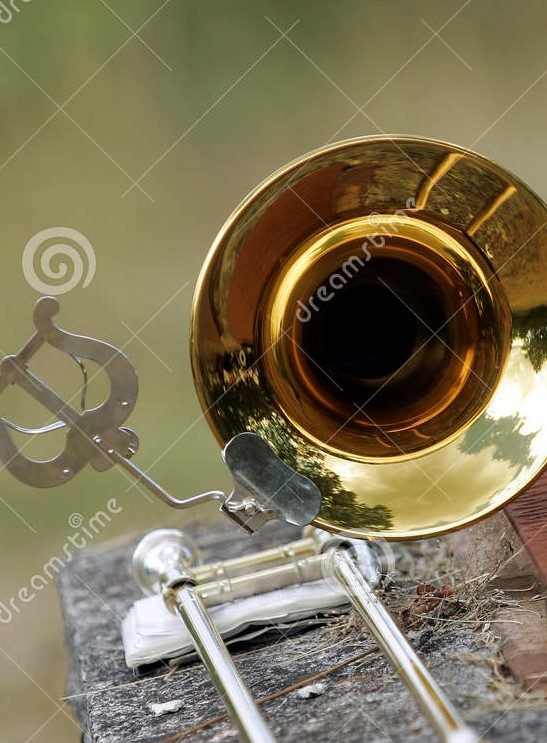We’ve all been there, half way through a concert or a rehearsal a valve sticks or a water key cork starts to leak or a Trombone slide starts to sound a bit rough and difficult to move. So what do we do? Well the first port of call is normally to apply some valve oil or slide oil, or in the case of the water key cork probably trying to find a way of securing it until you can fix it properly! There is of course, a way to prevent these problems, and in fairness it must be said that many brass players are very good at musical instrument maintenance, but for those who don’t here are a few thoughts.

Now I am definitely not polishing my halo on this one and don’t clean my Trombone as often as I should, but we regularly maintain vehicles by checking the tyres, water and oil and regularly getting them serviced, so why don’t we always care for our instruments in the same way? – and before I get some indignant comments from players who are very diligent about looking after their instruments this is not aimed at you.
I know there will be lots of players who haven’t played in anger for nearly a year now and I am sure there will be some who have hardly touched them let alone put them in the bath. This of course causes havoc as there is probably dried on salvia inside the tubes, water keys corks may have hardened up and slide cream or valve oil will have evaporated. So, when we do need them again then a bit of TLC will work wonders. Just soaking your instrument in warm water for a few minutes will start to remove some of the dried-on dirt and will ensure that the inside of slides and tubes are clean. Cleaning the valves is relatively straightforward but in my experience the inside of valve casings are often forgotten and when the instrument is then put back together the valves may still be a bit sluggish. This is often caused by dirty valve casings and no amount of oil will fix it.
To be honest, there is really no excuse for these matters to affect a rehearsal or performance as the instrument should ideally be checked regularly and certainly before an important event (Note to self: Make sure I do this more regularly!) and it is worth researching how your instrument is assembled as it wouldn’t be the first time that a student couldn’t get a note out of the instrument because the valves had been put in the wrong place or the wrong way round, most valves can fit in two places 180 degrees apart. One word of caution though, be very careful about dismantling French horn or Trombone trigger valves as these can be very tricky to reassemble, but oiling the spindles and valves is relatively straightforward. Metal linkages can be quietened quite happily with some tuning slide grease but strings are fiddly to replace and should be regularly checked.
So how often should this be done?
Well, in normal times this should be done regularly and probably on a monthly basis, perhaps even more often in the Summer when playing outside a lot, I appreciate that even if you are fastidious in maintaining your instrument, it will still be necessary to oil valves and apply slide cream but a bit of regular washing and polishing will not only make an instrument look better, it will probably sound better too. And don’t forget the mouthpiece. This is the players main interface with the instrument and it is important that it is clean, what may be encrusted onto a dirty mouthpiece isn’t worth thinking about. Some warm water and a mouthpiece brush solve this and it is a beneficial side effect that it will probably make a better sound.
On the website there is a very handy detailed guide on musical instrument maintenance, please feel free to download it.
– Resources (westmidlandsbrassacademy.co.uk)



